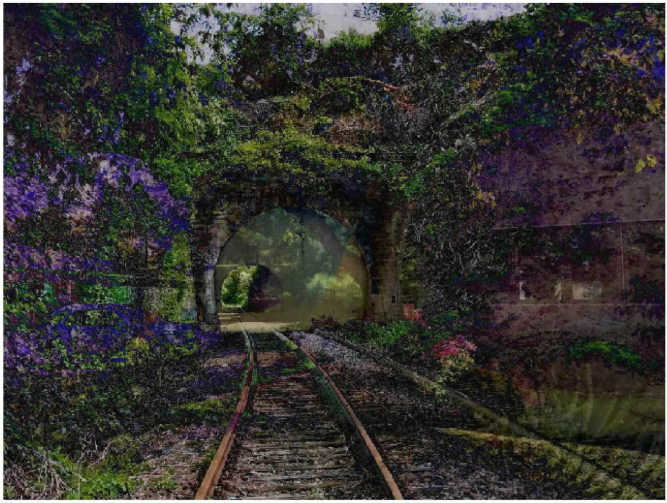In an opinion issued this August, the United States District Court for the District of Columbia denied a plaintiff’s challenge to the U.S. Copyright Office in regard to a work he was seeking to register listing a computer system as the author.[1] By issuing this opinion, the court took a strong stance against artificial intelligence (AI) systems holding ownership of a copyright and asserted that “human authorship is an essential part of a valid copyright claim.”[2] As different countries are beginning to take a stance on the issue, I will analyze three country’s approaches to AI and its place in copyright law: the U.S., India and Canada.
The United States Takes a Stance Against Copyright Authorship for AI
When the United States adopted the Copyright Act of 1976, it complied with the Berne Convention’s standards of copyright protection, therefore, it allowed for the expansion of American copyright protection internationally.[3] The Act intentionally left the technological aspects of fixation in a tangible medium of expression, the critical component of authorship, ambiguous in order to include future developments in technology.[4] However, in Thaler v. Perlmutter, the court takes a stance against AI systems holding copyright protection as authors, stating “[b]ecause copyright law is limited to ‘original intellectual conceptions of the author,’ the Office will refuse to register a claim if it determines that a human being did not create the work.”[5] This principle aligns with the U.S. Copyright Office’s policy that it “will register an original work of authorship, provided that the work was created by a human being.”[6] However, by denying copyright authorship to AI systems, is the U.S. may fail to align with international objectives to allow copyright authorship to AI.
India’s Moderate Stance Allows Copyright Co-Authorship for AI
In 2021, India’s Copyright Office rejected an application which listed AI as a sole author for a piece of artwork but allowed for an application which named the system as a co-author.[7] However, Indian copyright law does not explicitly address the issue of AI as an author, making the issue a still evolving one to be addressed by courts.[8] The issue was partially addressed in the Parliamentary Standing Committee’s 161st Report, which reviewed the India’s IP regime and recommended that a separate category of rights for AI-related inventions and solutions should be created.[9] Ultimately, the committee determined that IP protections for AI are “questionable due to the unsolved legal difficulties and unpredictable nature of the art.”[10] Therefore, although it seems as if India is taking a more moderate stance on authorship for AI, the issue still remains largely undecided.
Canada Takes a Stance in Favor of Copyright Authorship for AI
In 2021, the Canadian Intellectual Property Office issued copyright protection to a piece of artwork that listed an AI (RAGHAV Artificial Intelligence Painting App) as a co-creator of the work.[11] In doing so, the Office adhered to the modern interpretation of the Canadian Copyright Act, which stipulates that “the person who wrote the code, the AI’s developer, could be the author and thus own the copyright. . . . Another possible author could be the AI itself.”[12] Additionally, the Office adhered to the Canadian policy of “skill and judgment” in determining copyright protection – which protects work that is more than a mere copy, and that work need not be creative, as long as it “exercise[s] the skill and judgment of the author.” [13] The overarching policy of copyright in Canada, as the Supreme Court of Canada has expressed, aims to “strike a balance between promoting the public interest in the encouragement and dissemination of works of the arts and intellect and obtaining a just reward for the creator.”[14] Therefore, by taking a more economic-focused approach, the Supreme Court of Canada establishes a more liberal stance on AI authorship for copyright protection.
Although it’s still uncertain what policy the U.S., India, and Canada may ultimately adopt in determining whether AI systems are capable of being authors under copyright law, it remains a pressing issue as copyright law remains largely international and the adopted policies will inevitably impact the U.S. copyright regime.
[1] Thaler v. Perlmutter, No. 22-1564 WL 5333236 (F.Supp.3d Aug. 18, 2023).
[2] Id. at 1.
[3] Leonard D. Duboff and Sally Holt Caplan, Creativity and Copyright, Or. St. B. Bull., 5 (1989).
[4] H.R. Rep. No. 94-1476 at 51 (1976).
[5] Perlmutter, No. 22-1564 at 1.
[6] What is Copyright? U.S. Copyright Office, https://www.copyright.gov/what-is-copyright/#:~:text=U.S.%20copyright%20law%20provides%20copyright,rental%2C%20lease%2C%20or%20lending.
[7] Sukanya Sarkar, Exclusive: India Recognises AI as Co-Author of Copyrighted Artwork, Managing IP (Aug. 5, 2021), https://www.managingip.com/article/2a5czmpwixyj23wyqct1c/exclusive-india-recognises-ai-as-co-author-of-copyrighted-artwork.
[8] Srishti Ojha, Who Owns AI-Generated Works? Here’s What the Laws Say on Copyright Issue, India Today (Sept. 22, 2023), https://www.indiatoday.in/law/story/chatgpt-ai-generated-content-copyright-ownership-complexities-india-2439165-2023-09-22.
[9] Isheta T Batra and Radhika Bhusari, Analysis: Parliamentary Standing Committee’s 161st Report On ‘IPR Regime in India’, Trailblazer Advocates (Nov. 11, 2021), https://www.tbalaw.in/parliamentary-committee-161-ipr-analysis?utm_source=mondaq&utm_medium=syndication&utm_term=Intellectual-Property&utm_content=articleoriginal&utm_campaign=article.
[10] Id.
[11] Canadian Copyright Registration Number 1188619, Canadian Copyright Database (registered December 1, 2021).
[12] Victoria Fricke, The End of Creativity?! – AI-Generated Content Under the Canadian Copyright Act, McGill Business Law (Oct. 17, 2022), https://www.mcgill.ca/business-law/article/end-creativity-ai-generated-content-under-canadian-copyright-act#:~:text=13(1)%20of%20the%20Canadian,could%20be%20the%20AI%20itself.
[13] Poorvika Chandanam, Originality Test for Copyright Protection, IP Matters (Nov. 13, 2020), https://www.theipmatters.com/post/originality-test-for-copyright-protection.
[14] The Canadian Bar Association, State of the Arts: How Should Canadian Copyright Law Treat Works Generated by Artificial Intelligence? https://www.cba.org/CBAMediaLibrary/cba_na/PDFs/Sections/IP-Copyright-of-AI-created-works-AODA.pdf


